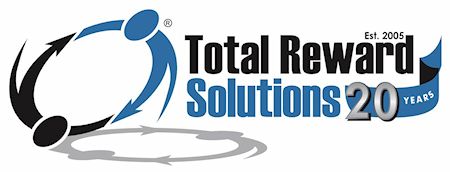Compensation Corner: Entry-Level Wages Rise in Tight Labor Market

As one of our valued strategic partners, we want you to know that when demand for workers goes up (in a tight labor market due to low unemployment), entry-level wages rise. Perhaps that’s no surprise. What might be surprising, however, is that many employers are aggressively vying for workers by offering more than double the federally-mandated minimum wage. Add the need for seasonal hires into the mix and the outlook becomes even brighter for entry-level workers looking to earn top dollar. Let’s dive into the numbers and see what they might mean for your company and your ability to hire fresh talent:
Why Entry-Level Wages Rise:
In an article titled Companies Raise Summer Wages to Compete for Seasonal Workers, posted online by the Society for Human Resource Management (SHRM), Economist Katie Bardaro is quoted:
“We’ve reached a level of unemployment that is below what many economists believe to be full employment. Therefore, lack of jobs isn’t the issue, but instead lack of workers. As the demand for qualified labor increases and the supply is limited, the price of labor increases, which is what we are finally seeing here for hourly workers.”
Indeed, when unemployment rates hit the 3 to 4% range, most companies find they cannot attract qualified entry-level workers by paying minimum wage. And as the need for seasonal workers kicks in, the labor pool gets even shallower, forcing pay levels higher still.
Survey Results
The SHRM article cites a couple recent surveys. One, conducted in March 2018 by Wakefield Research for Snag (formerly Snagajob), polled 1,000 hiring managers in the retail, restaurant and hospitality sectors. Nearly three-fourths of respondents in that survey indicated they plan to pay at least $11 per hour. This represents nearly 40% more companies paying at this level compared to the previous year. On the other end of the pay spectrum, companies reporting they would pay seasonal entry-level workers at minimum wage fell from 18% of respondents to 12%.
A CareerBuilder poll of more than 1,000 hiring managers and HR professionals found similar results regarding seasonal workers. In that poll, conducted in April 2018, 25% of employers planned “to pay summer hires more than $15 an hour on average.” (This is more than double the federally-mandated minimum wage of $7.25 per hour.) The poll also revealed that 87% of employers “plan to pay $10 or more per hour on average,” with 56 percent expecting to pay $12 per hour or higher.
Takeaways: What It Means for Your Company When Entry-Level Wages Rise
When it becomes commonplace that entry-level wages rise to double the federal minimum wage level, the impact can have a ripple effect throughout the marketplace and throughout your company. Low unemployment and a tight labor market have already impacted certain industries substantially. We are seeing that many employers in insurance, financial services, and other industry sectors have moved to $12 to $14/hour for entry level help. For workers with some experience in these fields, employers are paying $15 to $16/hour. And this is not just in metro markets; rural communities also report paying between $14 and $15/hour for entry level help.
Don’t forget that as entry-level wages rise, wage compression with other jobs in your organization can occur. In other words, when new hires earn higher wages, more experienced staff members may be underpaid in comparison. They often expect (and deserve) a commensurate bump in pay. So, it might be a good time to do some market benchmarking to see how your current pay rates compare to your industry or local market.
Additionally, many employers find that competing on pay alone is not sufficient, so they add insurance and other benefits designed to attract and retain better-caliber employees.
The Bottom Line:
Employee compensation and total rewards are moving targets. As unemployment drops, entry-level wages rise. This can also impact other wage and benefit levels in your organization. Seasonal workers entering the workplace often amplify the problem for employers who need to fill open job slots. Ultimately, wages follow demand within industries and local markets. To determine optimum pay levels for all employees in your organization, market benchmarking and executive benchmarking are important. If you aren’t sure your compensation and total rewards programs are market-appropriate and designed to help you attract talent in a tight labor market, contact Total Reward Solutions today at 317.589.8529.
Cassandra Faurote
About Total Reward Solutions:
Have a referral for us? Total Reward Solutions is your trusted partner for compensation and benefit services. As you recall, Total Reward Solutions offers a broad range of compensation, performance management, and reward/recognition consulting services to help your organization attract top talent, motivate employees and retain top performers. We can partner with you on a project basis, on retainer, or as your total outsourced solutions provider for compensation services.
Call us today at 317.589.8529 to discuss how we can help your organization develop and implement competitive and effective compensation and total reward programs.
